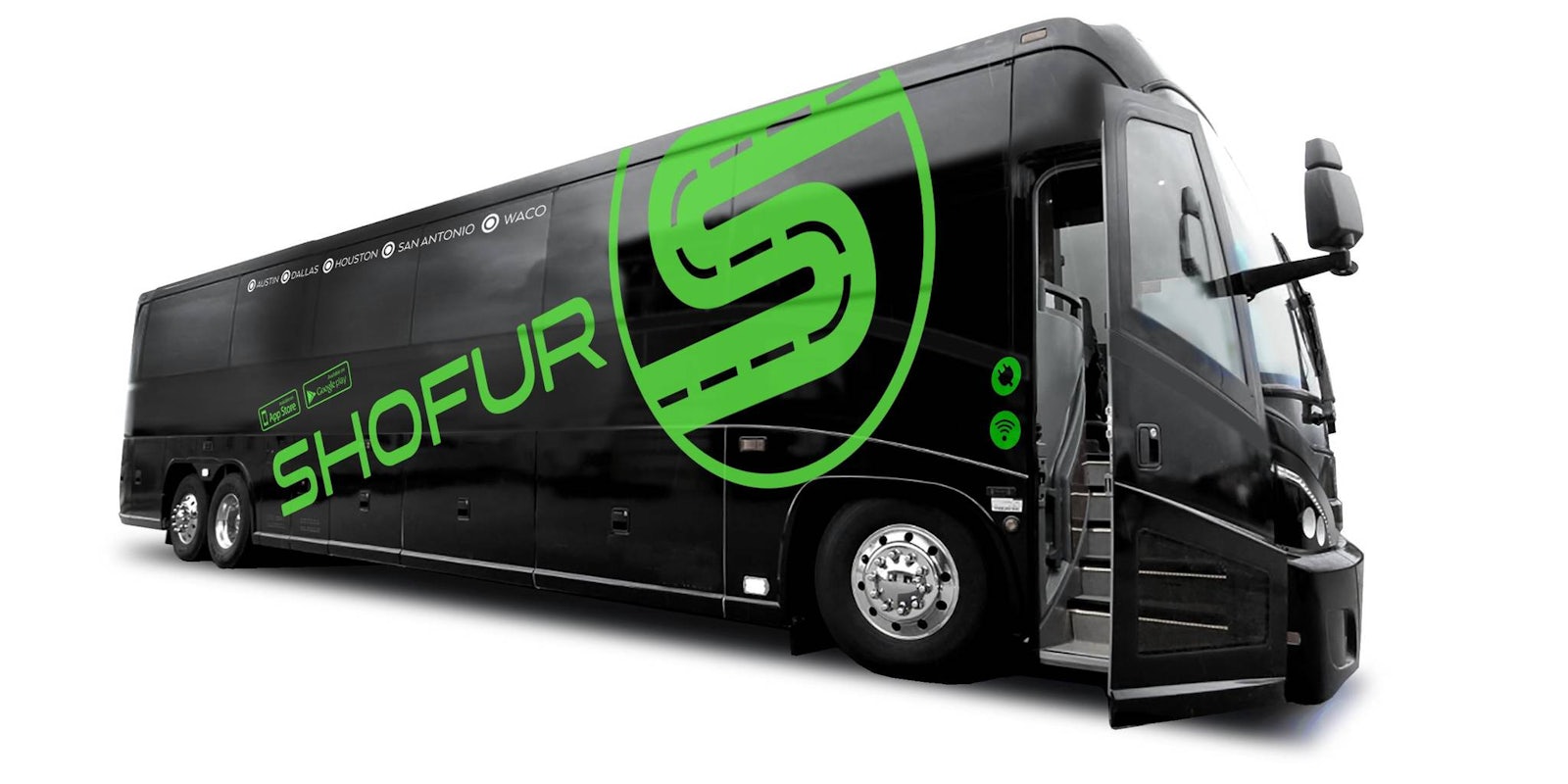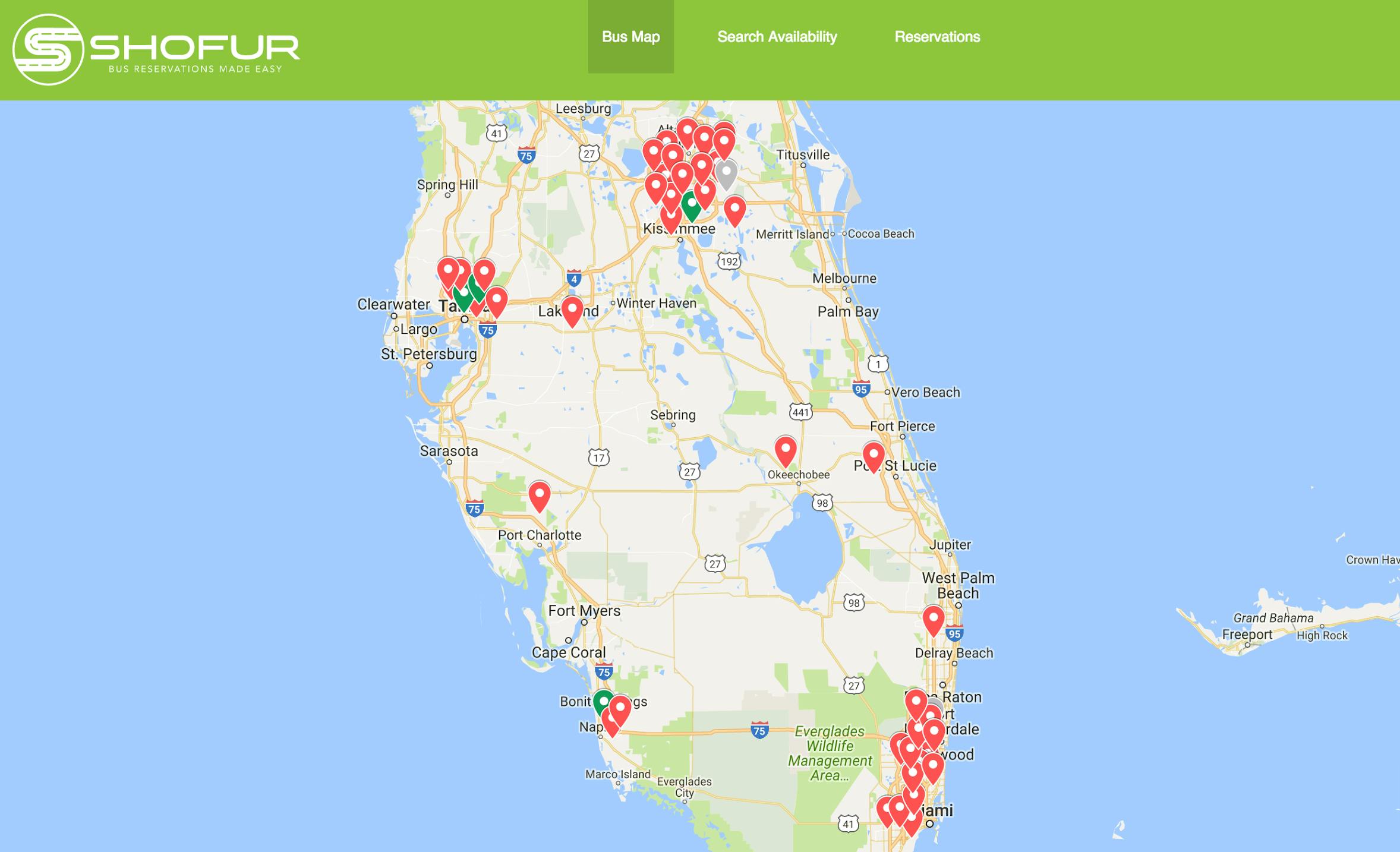In the 24 hours prior to Hurricane Matthew reaching Florida’s east coast, President Barack Obama declared a state of emergency for Florida, Georgia, and South Carolina. Florida Gov. Rick Scott urged 100,000 residents in evacuation zones to flee. “This storm will kill you,” Scott said. “Time is running out.”
But as early as Wednesday, bus transit startup Shofur was on the case. Through Thursday night and into the early morning hours of Friday, Shofur evacuated an estimated 10,000 Floridians and Georgians to areas such as Atlanta, Florida’s west coast, and the pan handle.
Despite the high volume of evacuees, Shofur CEO Armir Harris said very few of their riders probably know that the transit app was the company leading them to safety.
“We just stay behind the scenes, no one really knows about us. A lot of these buses are not branded as Shofur,” Harris told the Daily Dot less than 12 hours before Matthew reached Florida. “We just… make sure everything goes as smooth as possible.”
Shofur acts like a ride-hailing app, but for buses and bus drivers. The Atlanta-based company, which Harris launched in 2013, is one of the largest bus aggregation companies in the United States.
This tech startup has access to more than 3,000 buses and 400 bus companies in 120 locations throughout the U.S. and Canada. Most vehicles aren’t wrapped with the Shofur logo, those are mostly the tech company’s inter-city transit buses.
Once a bus company joins Shofur and gets its software, riders can book seats for trips between cities on the Shofur app, reserve buses for events, and request buses for emergencies—such as Hurricane Matthew.
With a proprietary technology, Shofur can determine bus activity and availability for each bus company in real time—Harris said it’s one of the only companies with that kind of software and dataset.
“First we started out as a charter bus-based business where people would call us if they needed to rent a bus or two, and we still do that, but now a majority of our business comes from last minute or crisis situations such as this, because we know where every bus is across the United States, and if it’s idle or not,” Harris said.
A few of the earlier calls came in from bus companies, nursing homes, and universities, such as the Savannah College of Art and Design. FEMA, which called Shofur during the Louisiana floods this year, tapped the company again to see if services were available for the Florida evacuees.
This isn’t Shofur’s first all-nighter. Harris said last-minute big orders for regional emergencies like Hurricane Matthew happen once or twice a month.
But each crisis is different.
For the Central American child crisis, Shofur helped transport unaccompanied children from the Texas border to Department of Defense stations daily. During the Louisiana floods, buses were fine to navigate the streets. Amid Snowpocalypse 2016, Shofur chained bus tires and sent them on their merry way.
“Our top priority is getting people who need to be evacuated out of there as soon as possible, that’s our main focus. We don’t want to put them in an even more dangerous situation sending them on the roads,” Harris said. “We have to play it safe.”
For Matthew, however, 120 mph winds, fallen power lines, and fractured palm trees aren’t conditions to mess with. Friday morning, Harris said Shofur stopped sending buses to Savannah around 4am ET.
Having stayed up until 5:50am ET, and with two hours of sleep, Harris said the evacuations ran through the night with little trouble or fanfare.
Harris did have to turn away a few calls, from groups that wanted to be picked up at 8am ET, when Matthew was originally estimated to hit Cape Canaveral. By then, the conditions would have been too dangerous.
“I didn’t feel comfortable sending more buses that late this morning,” Harris said. “It’s really dangerous, I think, when people wait last minute. We’re grateful for the business… But overall, [the circumstances are] a terrible thing.”




